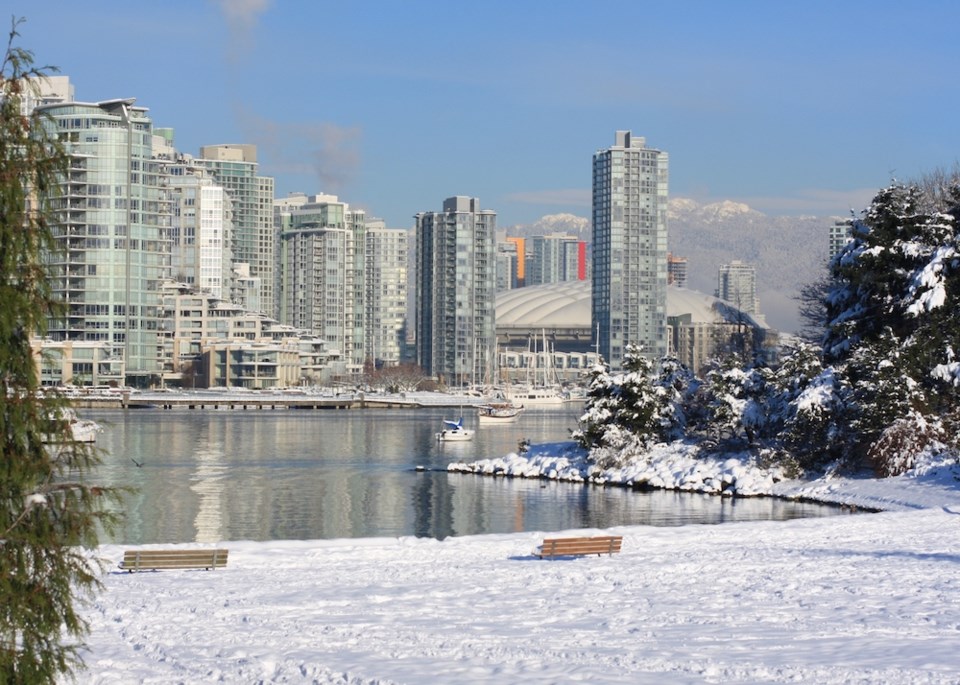If you haven't had to take out your gloves many times this winter, you aren't alone. But that doesn't mean cold weather isn't around the corner.
While Vancouverites have enjoyed a relatively mild winter so far, Environment Canada cautions that we aren't out of the woods yet.
In fact, Environment Canada Meteorologist Doug Lundquist tells Â鶹´«Ã½Ó³» in a phone interview that Jan. 15 is midwinter's night for most of the province, and it is typically the coldest day of the year, plus or minus two days.
"It's halfway through winter--so we have another half to go through," he explains. "And we can get snow--definitely in the latter part of January, February and sometimes March."
Lundquist stresses that snow events are far less likely heading into spring, but they can't be ruled out entirely. That said, he notes that the La Niña pattern is still affecting weather in the region, which could mean temperatures will dip a bit below average.
La Niña and significant cold weather
The Canadian Government as "the appearance of cooler than normal waters in the eastern and central Pacific Ocean"—A.K.A. the waters off B.C.'s coast. Sometimes also referred to as "a cold event", the climate pattern is generally considered to be the opposite of , and is usually great news for skiers and snowboarders hoping for a season full of champagne powder.
With this in mind, Lundquist says that the seasonal forecast indicates that Jan. 16 through Feb. 15 will not include below-average temperatures overall. However, he notes that around Jan. 20 a low-pressure system heading down the coast could cause cooler temperatures in Metro Vancouver.
In reference to the cold weather starting later in the season, Lundquist notes: "Often this La Niña thing is back-ended. And that's what we did say at the beginning of winter."
And why has it been so mild this winter in Vancouver?
Lundquist says that there is a natural variability of weather and that the region is "stuck in a pattern where the systems have been coming from north of Hawaii," which is a really warm location.
Moving forward, however, weather models only pick up arctic air outbreaks about 10 days out from when they will arrive in the region. This means that these events are not entirely factored into the current forecast, and, as Lundquist notes: "All it takes is one of them to really mess things up in Vancouver."
--With a file from Megan Lalonde.



